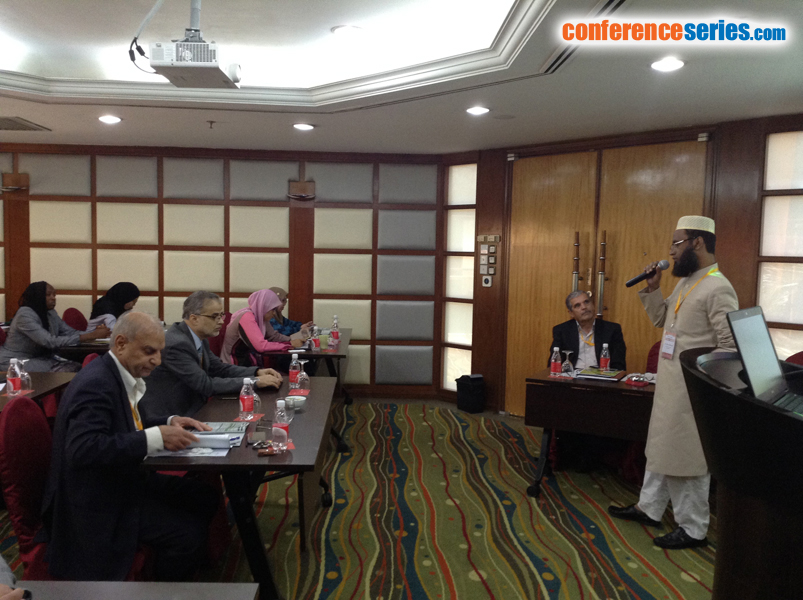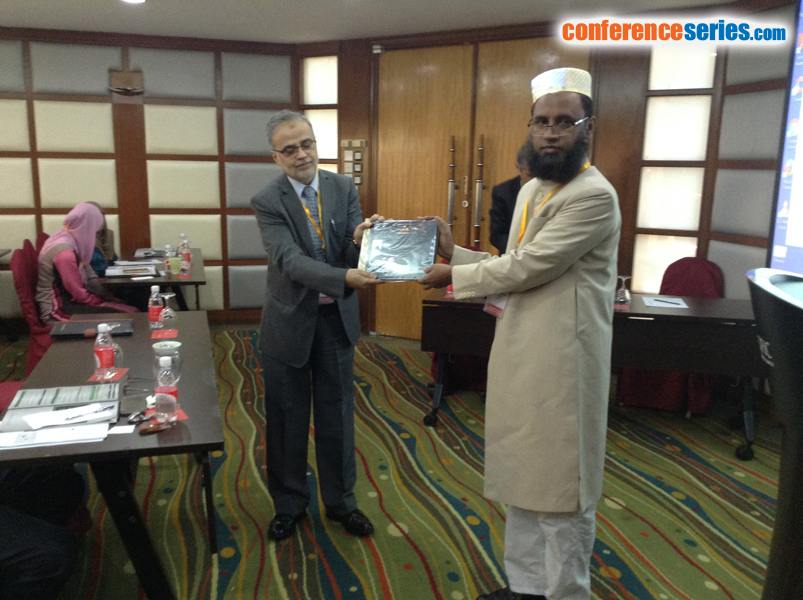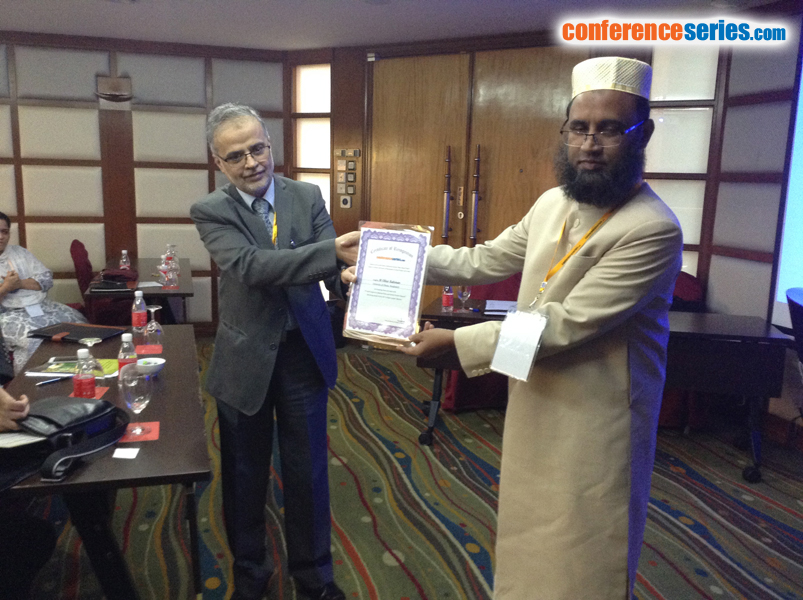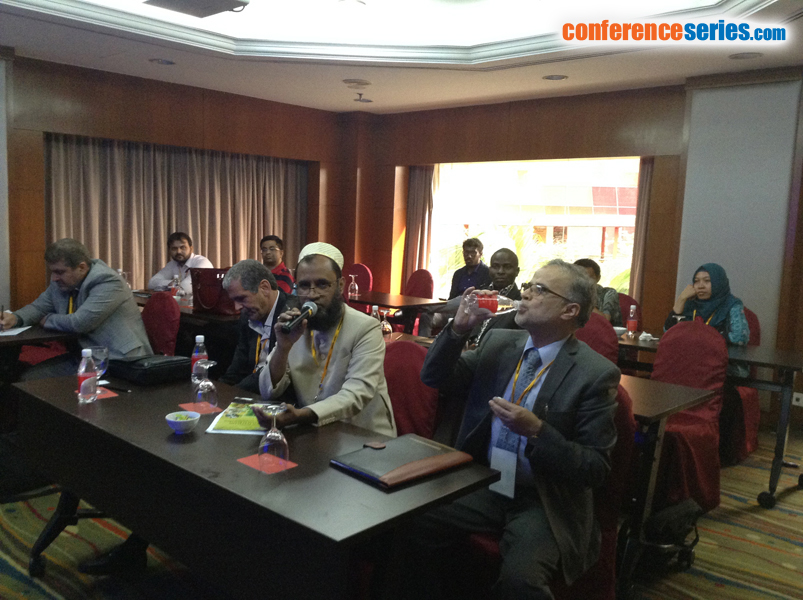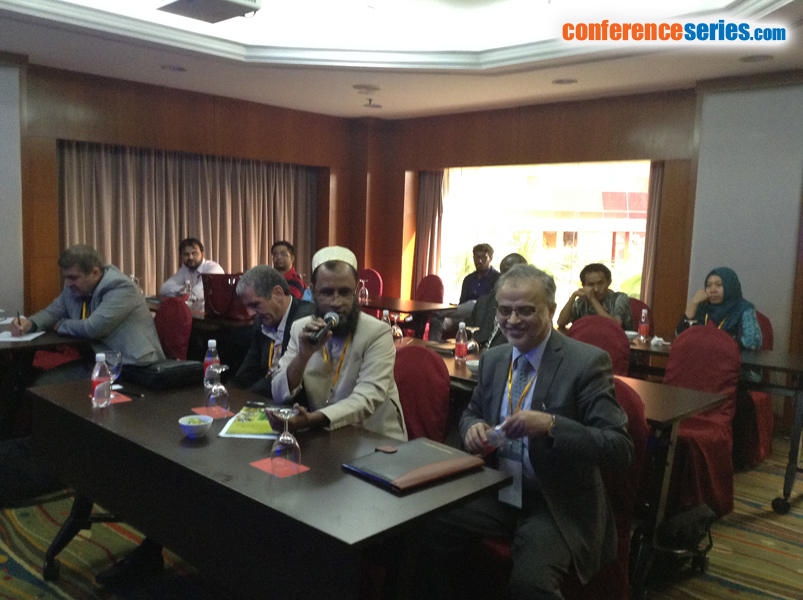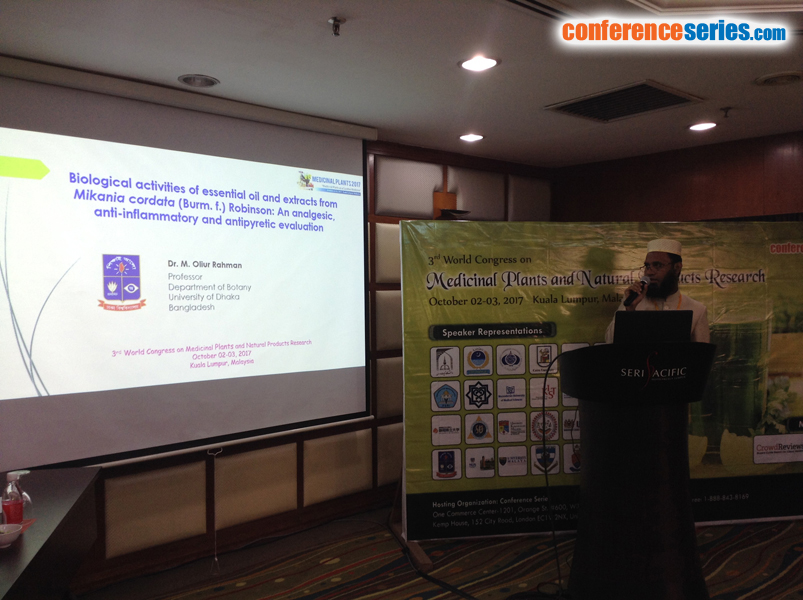
M Oliur Rahman
University of Dhaka, Bangladesh
Title: Biological activities of essential oil and extracts from Mikania cordata (Burm.f.) Robinson: An analgesic, anti-inflammatory and antipyretic evaluation
Biography
Biography: M Oliur Rahman
Abstract
Mikania cordata (Burm. f.) Robinson belonging to the family Asteraceae is a twining herb, characterized by its cordate leaves, capitulum inflorescence, white flowers, narrowly oblong cypsela type of fruits and white pappus. The species has long been used in folk medicine in Bangladesh to treat cuts, wounds and dengue fever. The present study aimed at evaluating the analgesic, anti-inflammatory and antipyretic potential of the essential oil (12.5, 25 and 50 mg/kg) and two extracts, viz., chloroform and ethyl acetate (200, 400, 800 mg/kg), from aerial parts of Mikania cordata. The essential oil of M. cordata showed potent analgesic effect (47.33% writhing inhibition and up to 95.86% elongation of reaction time at 50 mg/kg body weight dose) in both models (acetic acid induced writhing’s and hot plate reaction time in mice), suggesting peripheral and central actions. In addition, the essential oil produced dose dependent anti-inflammatory effect (the 50 mg/kg b.w. showed highest 72.80% edema inhibition at 4 hours, respectively). The chloroform extracts and ethyl acetate extracts possessed moderate inhibitory activity on acetic acid induced writhings (up to 29.33% and 16.65% inhibition, respectively at the dose 800 mg/kg b.w.) and hot plate thermal stimulation in rats (up to 79.18%, and 42.37% elongation of reaction time, respectively at the dose 800 mg/kg b.w.) as well as carrageenan-induced hind paw edema in rats (up to 34.31% and 15.27% of edema inhibition, respectively at dose 800 mg/kg b.w). Moreover, the essential oil and chloroform extract displayed an excellent antipyretic effect in yeast-induced hyperthermic rats, whereas the ethyl acetate extract had no antipyretic activity. Results of the present study confirmed the traditional use of M. cordata for the treatment of pain, inflammations and fever, claiming that the essential oil as well as the leaf extracts of the species has potent analgesic, anti-inflammatory and antipyretic properties and calls for further investigation to determine the active phytoconstituents.


